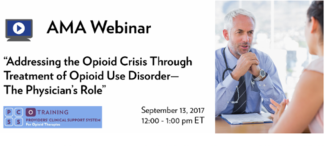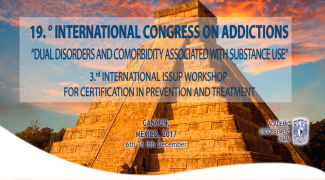Applying interventions designed to reduce and manage the symptoms of substance use disorders.
Treatment
Webinar: Addressing the Opioid Crisis through Treatment of Opioid Use Disorder-The Physician’s Role
This program focuses on harms from opioid-type medications, the development and fundamental features of opioid use disorder, and how physicians can play a key role in reversing what has been called the “opioid epidemic” through evidence-based treatment of opioid use disorder. Sarah E.

19th International Congress on Addictions: "Dual Disorders and Comorbidity Associated with Substance Use"
In recent years, it has become evident that in order to better understand the phenomenon of psychoactive substance use and its implications for physical and mental health, a multidimensional approach is necessary, since there are many and varied aspects involved in the consumption of psychoactive substances and the development of addictions.

Barriers to Retention in Methadone Maintenance Therapy among People who Inject Drugs in Bangkok
The Importance of Nutrition for Recovery from Addiction
Dual Disorders: A New Way to Think about Addiction?
How States Are Tackling the Opioid Crisis
Drug Matrix Cell A1: Interventions - Ways to Reduce the Harm
Smartphone Ownership among US Adult Cigarette Smokers
6th International Drug Abuse Research Society Meeting
The 6th International Drug Abuse Research Society (IDARS) Meeting will bring together basic scientists and clinical investigators from the international community to share new conceptual insights into alcohol abuse, substance abuse, and addiction treatment. Addiction to drugs and alcohol is a global problem that is prevalent in rich and poor countries alike.
Alcohol-Related Liver Disease: Guidance for Good Practice
The Scottish Health Action on Alcohol Problems (SHAAP) is pleased to invite you to the national launch of SHAAP’s ‘Alcohol-related liver disease: Guidance for Good Practice’ and delighted that Dr Catherine Calderwood, the Chief Medical Officer, has agreed to speak.